NINE-TIME Irish champion jockey Pat Smullen made racing headlines in 2019, but sadly it was for the news that his career in the saddle had come to an end due to a diagnosis of pancreatic cancer.
One of the most respected members of his profession, he turned his energy into fighting the illness, but also to raising awareness and funds for research into the disease.
Continuing his personal battle with cancer, he spearheaded a campaign that has raised millions of euro for Cancer Trials Ireland. He sat down with Leo Powell recently and spoke openly and candidly about his illness, his career in the saddle, the people who have influenced him and his hopes for the future.
A year of mixed emotions
LP: How do you look back at 2019?
PS: “Probably with mixed emotions. Deep down in my heart I knew I was never going to get back to race riding, but there was always that little bit of a hope of it. Then the realisation of it happened leading up to May time. It was hard, no question.
“I don’t think I would have dealt with retiring well anyway. The way it happened was probably a good thing in ways, because I had a bigger picture of what was going on in life. I had a bigger battle to fight and that deflected a lot of the negative side.
“I do know that, had it just come to an end for whatever reason -– let it be that you are gone out of fashion or your time was up – I just know that I probably wouldn’t have dealt with it as well as I actually have now. So, I suppose that’s the positive out of it.”
People generally would see you as positive, always throwing your heart and soul behind everything you do.
“I was not that person and still I’m probably not that person. When I was race riding I was always a glass half-empty person. It was never enough, I wanted more, felt like I was never good enough. I suppose that’s just part of being a sportsperson – you want to push yourself to the limit.
“With race riding gone out of my life now I’m putting everything into the battle that we have at the moment. I think I put a lot of energy into the fundraising as well; energy that was there when I was race riding I had to divert it to something else. So it’s probably good that the fundraiser came along.
“We did a lot of work but we got huge help from HRI. I can’t tell you what Barbara White and John Osborne did. Joe Foley actually was the person that brought it to my attention and thought that this would be a good idea.
“We got a huge amount of help from a lot of people. I’m very satisfied and glad that we did it. I got a lot of enjoyment out of it and I think it worked on two levels. We did a lot of work for Cancer Trials Ireland which is very, very important to me and to the cause. But I think we did a lot for Irish racing too. I’m very proud of that.”

In November you got the Cartier Award of Merit, acknowledging your career and the work you have done since. That must be very satisfying.
“That was the most special night of all. To be recognised by people in a huge industry in England as well, outside of your own country, there was something very special about that. The Cartier Awards are so prestigious and you don’t win one of those by chance.
“Yes, it was acknowledgement of my career maybe. Would I have got a Cartier Award if I didn’t have the charity work? Possibly not. I think it was a recognition of my career, the charity, but I think Irish racing was appreciated too by the wider public in England and beyond. The feedback we got from all around the world was amazing.”
I would describe you as the quiet man of racing, the ultimate professional. Has being cast into the limelight taken you out of your comfort zone?
“I was the type of person who wanted to just get on with the job, do what had to be done. Within reason I think I kept a very private life to myself outside of racing. That was me. The charity work and all that definitely took me out of my comfort zone a bit. On occasions I was quite embarrassed.
“I was just like – what is all the fuss about? I genuinely feel embarrassed about a word that is used a lot, inspirational. What is inspirational? I mean, I’m only doing what any normal person would do. I can’t get my head around that.
“The nurses in the hospital said to me you should do something because I had a profile, and that’s what I did. It grew legs, no question, but inspirational? I don’t get that at all. What I’m getting on with in my own personal life is what any person would do, and hundreds are doing every day of the week.”
Would you not see that being so resolute in fighting your diagnosis has given hope and inspiration to people who may have felt like giving up?
“That is lovely to think and I hope that is the case. But at the end of the day I’m just Pat Smullen. I live a very simple life with three kids to rear. I’m just a normal person getting on with life.
“It’s not easy to get through what we are getting through. You look for a bit of comfort from something or from somebody. If I am giving someone hope, that is brilliant.”

You have probably met people who have given you inspiration.
“No question. They are people that I meet in the hospital, they have the very same fight that I have and I get inspiration from them. It’s a two-way thing.”
In the last few months you’ve had many high profile events, but have you been touched by smaller, private things?
“All of that, and letters that have come in through the door here from people wanting to donate small amounts of money. Like in any charity they are vital and that really touches me, and I’m very, very appreciative.
“It went beyond the racing public too which was important because the aim is to raise awareness at the end of the day. I was afraid of it becoming a Pat Smullen thing, which it isn’t. It’s about raising awareness and much needed funds. I think we struck that balance.
“But there was one thing that really got me, when the stable-staff donated all their best turnouts and expenses for the day. I thought that went above and beyond the call of duty. We had all the big donations from great people, but that was the one that got me.
“Why? I started out as stable staff and that is damn hard-earned money. To give that up on one of their biggest days, I thought it doesn’t get any better. It gave me a bit of personal satisfaction. I think I have always been courteous and polite when I was being led up.”
How did the diagnosis change you? Did it bring out the best in you?
“It definitely brought out the best in me, but it changed me as well. There’s no point in saying different. I wasn’t an easy person to live with. The glass was always half-empty, I never had enough winners, never had enough success, and I never felt like I got to the level I wanted to.
“So I was constantly pushing myself the whole time, and what that brought was like mental torture. That’s what it was. I was always a private type of person at the races, but then I probably brought it home, and that’s something I regret. I didn’t appreciate what was happening when it was happening.”
Is that something that moves some sports people from being ordinary to being the best?
“There’s no question about it. I was not the most natural, talented rider. I’m fully convinced of that in my own mind. I had to work damn hard at it to try and improve myself the whole time, to get to the level where you were good enough to be accepted by the likes of Dermot Weld. That didn’t happen naturally for me.
“I left school very early with no education. This had to succeed; if it doesn’t where do I go, where do I turn? If there’s one regret that I have it’s that I didn’t stay at school and get my full education.
“If I did I know I wouldn’t have made it as a jockey. Between the ages of 15 and 18 it would have gone on me. Now it’s brilliant to see the kids finishing their Leaving Certificate and riding that evening. In my time that wasn’t accepted.
“I love the way the mind-set has changed with employers and owners; that it’s so important that they get educated first and then the riding comes. That balance has been struck now and I think it’s the best thing that’s ever happened to apprentices.”
I would suggest that you are very hard on yourself and that plaudits don’t sit well with you.
“I’m very uncomfortable with all that to be totally honest with you. Other people are a lot more flamboyant and can take all the praise and thrive on it. Maybe I could have sold myself better as a jockey, maybe. For me to get the Dermot Weld job and to hold it as long as I did, to me that was a huge achievement.
“We all know that Dermot is a perfectionist. I’m quite happy and content in my mind that if I wasn’t doing the job to the level it should have been done I would have been gotten rid of. His standards are so high.”
How important was winning the 1996 C.L. Weld Stakes on Token Gesture?
“Probably the most important winner of my life. No question. One, it was for Moyglare; two, it was for Dermot. Then it was at that period of time where there was going to be a change in jockey arrangements at Rosewell. So to ride that winner was vital.”
And a touch of luck about it?
“Have I been lucky? Pat [Shanahan] was out of action with an injury; Mick [Kinane] chose the wrong one, and then there was a three-way photo-finish and me beating Mick and Christy Roche. Oh no, don’t get me wrong, I never underestimate luck. You need luck on your side in life and how often does it happen in Ireland that there was such a shuffle among riders.”

“It has changed my mind-set on life – I’m very much the glass is half-full now. I’ve dealt with this a hell of a lot better than I ever thought I would, or Frances thought I would, or anyone belonging to me thought I would.”
There are so many people working behind the scenes for you.
“They are amazing. First and foremost we were very fortunate. I’m working with the likes of the jockey’s association to make sure that young kids have private health care. I was very fortunate that my mother did it at the beginning.
“Having private healthcare meant being able to get access to the best, and we have the best medical people in the world. I was very fortunate too that Dermot [Weld], Eva Haefner, everyone that we had on board, could open doors.
“If I needed to be sent anywhere around the world I could have been. When all the research was done and everyone was trying to see what the next step would be, including Dr Adrian McGoldrick, we found the surgeon Justin Geoghegan. From what I can gather there’s no one better. Also my oncologist and all the staff – I couldn’t have been looked after better.”
You have a positive attitude. How do you cope with it all?
“Don’t get me wrong. I don’t want to be sitting here saying everything is rosy. I have my dark days as well. After the surgery I thought I’d never be able to eat again. As Professor Geoghegan said I was plumbed differently, so the body had to learn how to work again.
“And lying in a hospital bed trying to fight away all those bad thoughts and get yourself back up and going, the mental strength that was required was huge. I shocked myself that I was able to get the mental strength to be honest, because I wasn’t that person when I was riding. Or maybe I was but I didn’t know it.”
Was being in good physical condition a help?
“Justin Geoghegan said to me that he cut through the skin and hit muscle straight away. There was no body fat. The nurses on a daily basis said to me ‘we can’t believe how fit you are’.
“We were unlucky. I got through the first major surgery well, but then we had a complication in that the gut twisted and I had to have a second surgery. I think if I didn’t have that complication we might be a good bit further down the road.
“I think what it shows is that the fitness required to be a top-level jockey is so intense. I don’t think the general public really appreciate how fit and physically strong riders are.”
You mentioned Adrian McGoldrick in passing, but I suppose some people may not appreciate what he has done for your profession.
“I don’t have the words to describe what that man has done for me. I can only speak for myself but I know he’s done so much for so many people. On a personal level, like, he was instrumental in getting me to the Beacon immediately. Then he did his research overnight and said we have to get you to Vincent’s.
“He was up to me on numerous occasions in the hospital, liaising with the surgeon when we didn’t have a relationship with him. He knew Justin, he was able to pick up the phone. Not every patient has that luxury.
“I was blessed to have a person in my life who was able to have conversations with the surgeon about me and he just created a relationship between the whole team. He was, and is, simply brilliant.
“All he did for me gave us confidence, and it was so important to have trust and faith in the team around you.”
You have a very special relationship with Moyglare Stud and Eva Haefner.
“I was very fortunate to get to ride for Moyglare. They were the principal owners in Dermot’s at the time, so if they didn’t want me Dermot wouldn’t have had me. They gave me an opportunity as a 21-year-old, entrusting me with their best horses.
“Mr Haefner wasn’t around as much in the latter years, so you were pretty much dealing with Stan [Cosgrove].
“When Mr Haefner died Eva took over. For me, personally, she brought it to another level. She took a huge interest in the farm and in racing and I just seemed to hit it off with her.
“I can’t express how important she has been to me and to us as a family throughout the years that I rode for her. But even more so in the last two years the support that she has given us is immeasurable.
“She wanted to keep me involved and I’ve a great interest in the farm, probably to the point where I frustrate both Malachy [Ryan] and Eva!
“Like with Adrian McGoldrick, I don’t have the words in my vocabulary to describe how great a woman she is to me on a personal level and also to Irish racing. What she has done for the Curragh as an investor, the refurbishment of the gallops, and to take on the farm as well and keep that legacy going, is outstanding.”

Eva Maria Bucher Haefner greets Pat Smullen after Shamreen won the Moyglare Jewels Blandford Stakes \ carolinenorris.ie
Dare I ask if you have words to describe Frances?
“You know I was so fortunate to have met her at an early stage of my life. We worked together and she was training too. I saw at close quarters how hard a life it is to train racehorses, to try and make it pay, to try and keep everyone happy.
“Frances is the rock of the whole family, she keeps the whole thing going. There’s no two ways about it but I couldn’t get through this the way I get through it if I didn’t have her. She takes care of everything.
“When I was riding I had nothing to worry about in life, only riding horses. She looked after everything else. And now I’ve nothing to worry about only getting better. It just wouldn’t happen without her support. She’s a Crowley; they are made of strong stuff.
“I needed that strength and support. She was like that when I was riding, but more so now. We are getting through this, with the kids, and it wouldn’t be going as well as it is only for Frances.”

Frances and Pat Smullen at the Champions Dinner in May 2019 \ carolinenorris.ie
Hannah, Paddy and Sarah, were fantastic on the video shown at the HRI awards.
“Yeah, they are great. They have their ponies and they enjoy riding. Will they get involved in race riding? I don’t know, maybe. I would prefer to see them do it as an amateur and have a career outside of it. I think that would be brilliant. It’s entirely up to themselves.
“They are doing really well and it’s been hard on them, because they see first-hand what’s happening, what I’ve to go through. They are so resilient; it’s excellent.”
Do you have a different perspective on racing now that you are out of the saddle?
“Definitely. While you are race riding you think of nothing other than that. I never looked at any other aspect of what’s happening in the industry, nothing. My focus was on the next race, doing your homework on the opposition and all that.
“When you are sitting watching it, I find myself getting very critical. I think I’ve become a punter! That’s the funny side of it.
“I do realise now a bit more about the bigger aspects of the industry, how much pressure it actually is under. And it worries me to be honest.
“In America with the breakdowns it’s getting a bad rap. Obviously horse welfare is everything, but I think we need as an industry to try and educate the wider public on how we actually do look after horses so well.
“We’ve a few horses here of our own, and you’d feed them before you’d feed yourself every evening. They are taken care of so well.
“Then unfortunately you hear what happened in Australia. This is on such a small scale compared to the big picture, but it’s highlighted.
“What really, really frustrates me is that some of these welfare organisations don’t realise that there’s jockeys on their backs that are doing exactly the same.
“Unfortunately we do have serious injuries; unfortunately we do have fatalities. It happens to horses as well.”
Hopefully you don’t have regrets in terms of your career, but was there anything that you felt that you wanted to do that was left undone?
“I had one regret. It is that I didn’t get an education. But no, there’s no real regrets. I think a good thing is that I was 100% loyal to Dermot and his owners.
If I was a little more selfish and pushed myself I could have maybe gone a little bit further in my international career.
“However, I always felt that I needed to be fully committed, whether it was on a Monday for Dermot’s owners if they had an important maiden running, or on a Saturday, and that I had to be there to ride it. I was always let go for a Group 1, but that’s the way I was. It’s not a regret.”
I would say that it says a lot about you as a person.
“Well when I was in Dermot’s I was fully committed. I think if you are going to be a stable jockey that’s the whole reason for retaining one.
“I think it’s nearly a thing of the past, but with the right combination it can bring a stable to another level.
“Nowadays you have owners that want to have certain riders. That’s good too that owners have their input. I just think if a trainer and rider get on really well, and they get each other and the owners are happy to use that jockey, it can just bring great success with it.”
You have been doing other things. Do you enjoy the writing and broadcasting?
“Doing the TDN column I really enjoyed. Challenging to come up with something on a weekly basis, but I did enjoy that and working with Emma Berry was great. 
“The broadcasting I thought I would enjoy more than I did.
“It’s very hard to do; good racing on the big days is very easy, because you know all the horses, but I found the run-of-the-mill, every day stuff very hard. I admire all the lads who do it because with run-of-the-mill horses you could insult someone very, very easily.
“It’s nice to do on occasion, but it wouldn’t be something that I’d be making a full-time career out of.”
What about breeding here on the farm? Is that something you like?
“We really enjoy that. We’ve got a couple of mares and it’s a family that Frances had, Saving Grace, and now we have a daughter of hers.
“It’s not easy and probably a numbers game. To get into the level that you want on a small scale is so expensive.
“For the first time this year we’ve bought a few foals to pinhook, to go along with the couple that we’ve bred, and it’s something that we can do together.
“We have the farm and we want to try and make it pay. This place was very much a hobby for me when I was riding – it was sort of my get-away. We’ve always loved the sales; Frances obviously has been doing it all her life.
“So that’s our new little venture and hopefully we can be successful at it.”
Is there anything else you’d like to do in the business?
“I’ve never really given it much thought. I would like to think that down the line I’d be someway helpful in promoting the sport. There’s lots of different aspects to it but I do think I’d be a good promoter and I’ve been around the world. I think I’ve been well received. It’s something I would enjoy doing.
“I don’t like people who are just takers. Racing has given me what I have, and it’s nice to give back something. It does worry me when it’s getting such negative coverage in certain areas because it’s an amazing sport, full of brilliant people, and I think that was very evident over the Irish Champions Weekend.”
I remember thinking to myself that you should not have been putting yourself through that weekend with the abysmal weather, but the lift you got from it must have helped.
“Yeah, but again I love going racing. I hadn’t relapsed when I agreed to it. Adrian [McGoldrick] even said it to me; ‘that’s it now, you’ve done your bit’.
“The biggest disappointment was not being able to ride in the race. I remember Frances asking me one day if I thought I’d be able to – and I was getting chemo!
“I was feeling a bit better though and I’ve been very fortunate I get through the treatment well. I thought for a moment I could do it, but I just knew physically it wasn’t to be.”
What has this whole experience taught you?
“It’s easier said than done, but the one thing I’ve learnt out of all this is that you have to keep positive. You have to keep thinking that this is going to work out, you are going to get it sorted, get through it and I live with that every day.
“Speaking to Cancer Trials Ireland, the amount of stuff that’s going on behind the scenes that no one knows about is incredible. I can tell people now that there will be something there to help each individual with whatever cancers they have.
“Pancreatic is a very difficult one. They are working extremely hard to find something and that’s what’s helping me get through it.
“You have to be positive. I’m fully convinced that if you sit down and let ‘it’ get in on you and start to take over your mind, I feel it would feed on that.
“So you have to have the mental strength that you are going to beat it and not let it beat you.
“If you let the negative feeling get in on top of you I think it will overtake you. My message to people is to just get up and live for today.”

The Champions with their children before The Pat Smullen Champions Race For Cancer Trials Ireland, including Hannah, Paddy and Sarah Smullen \ carolinenorris.ie
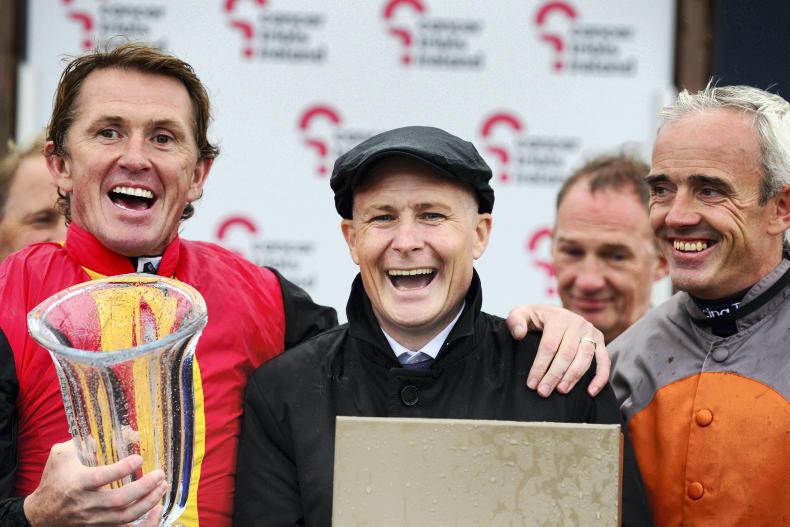

 This is a subscriber-only article
This is a subscriber-only article
 It looks like you're browsing in private mode
It looks like you're browsing in private mode




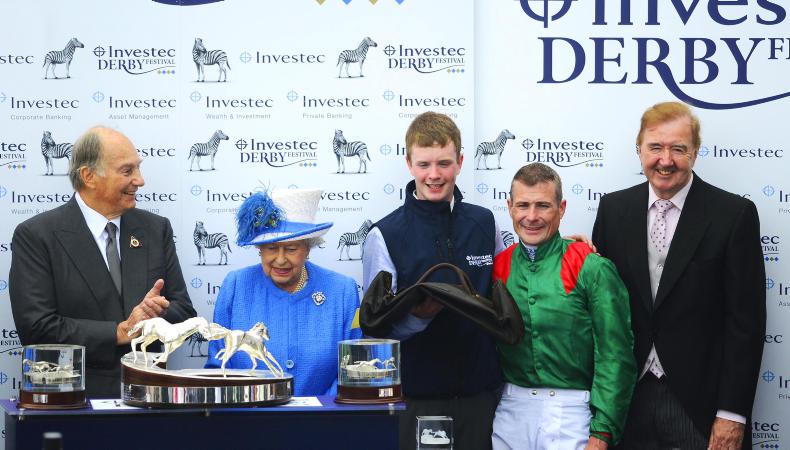
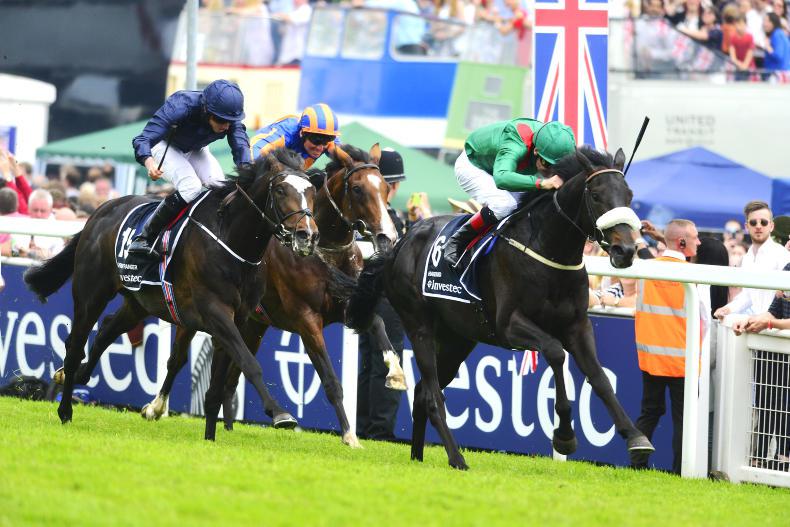
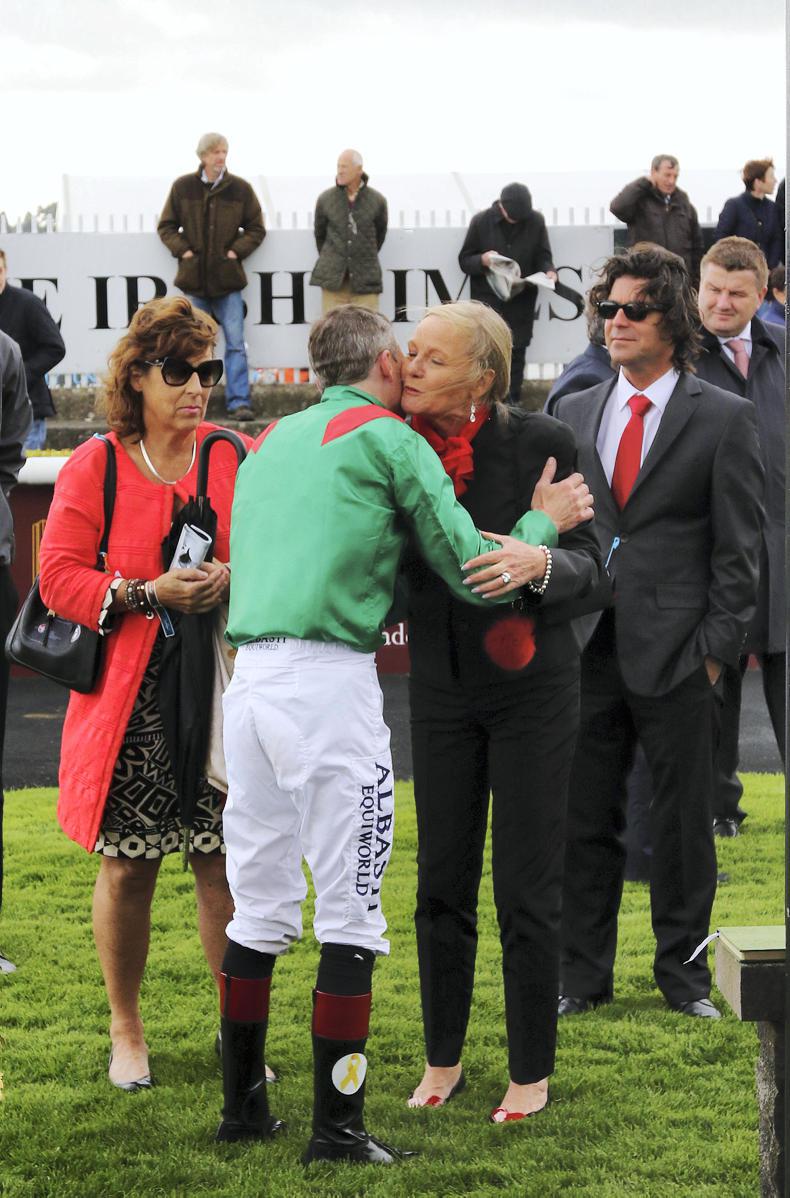
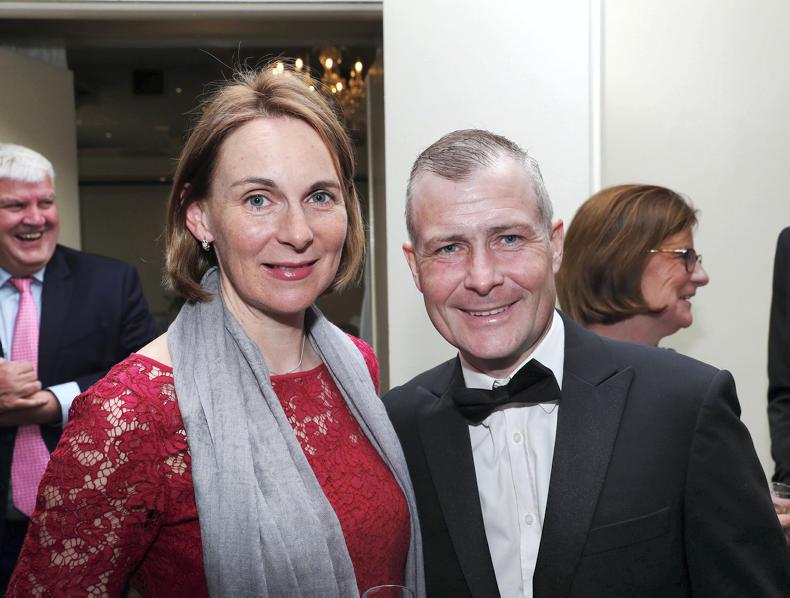
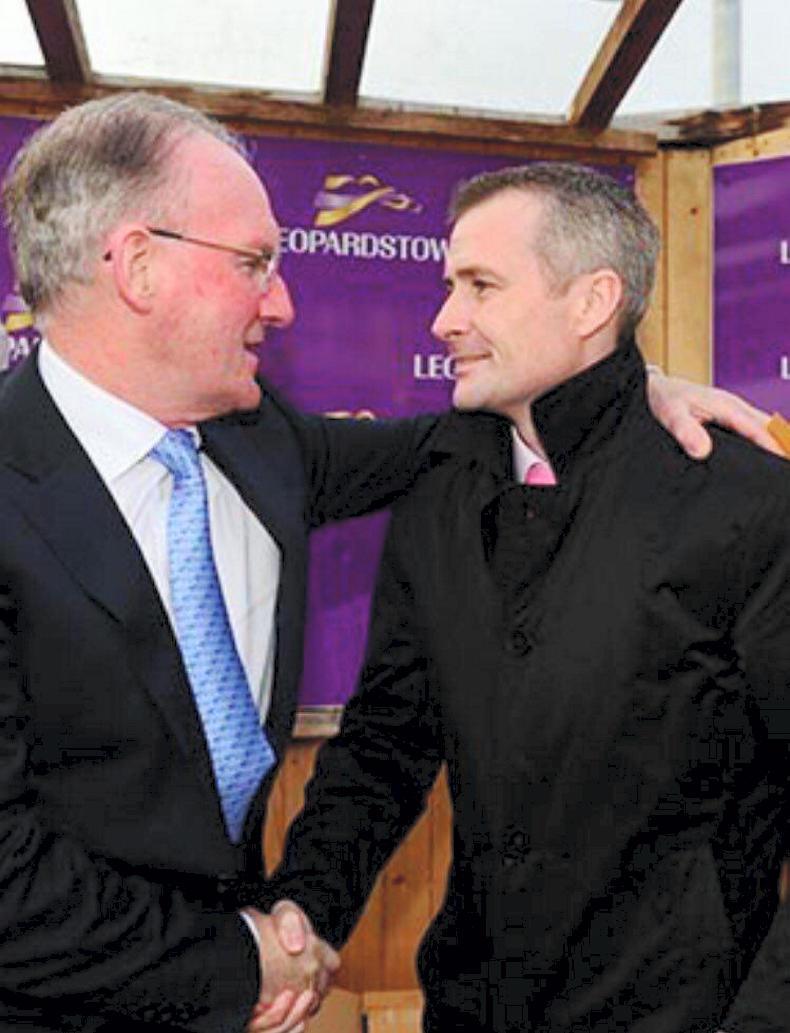
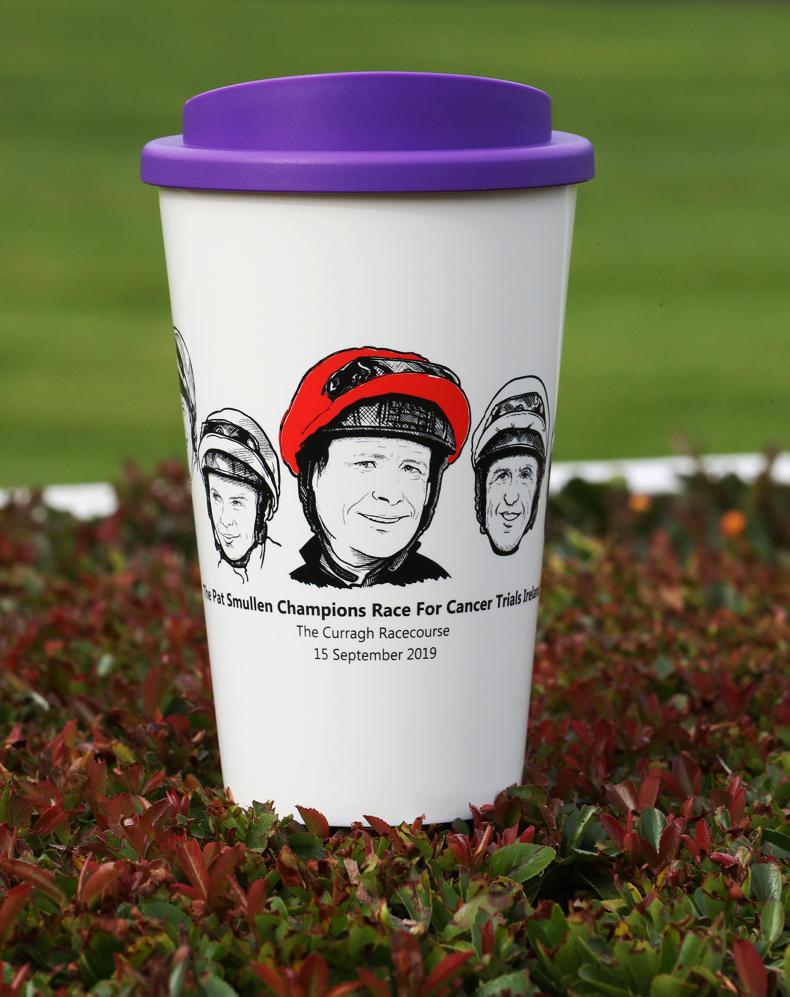
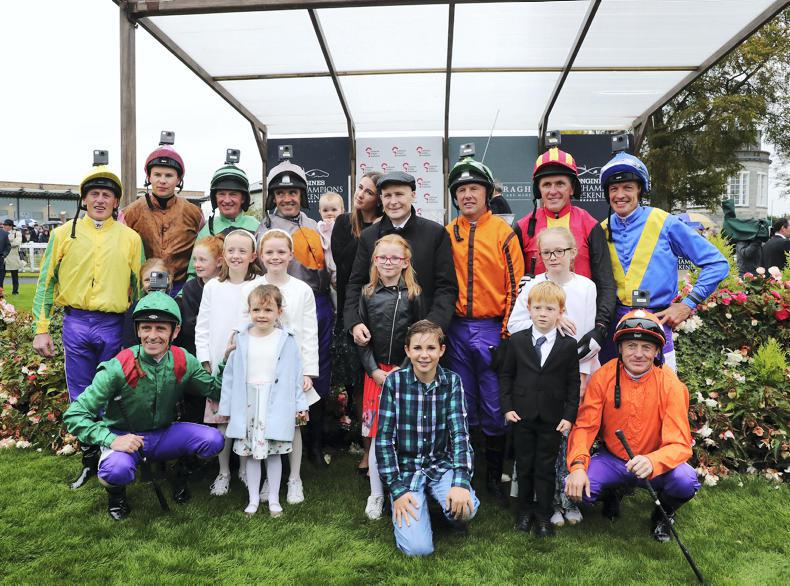

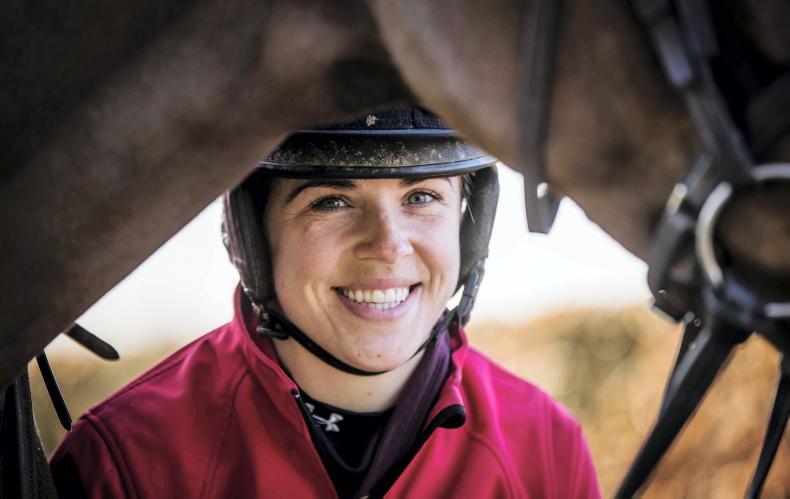

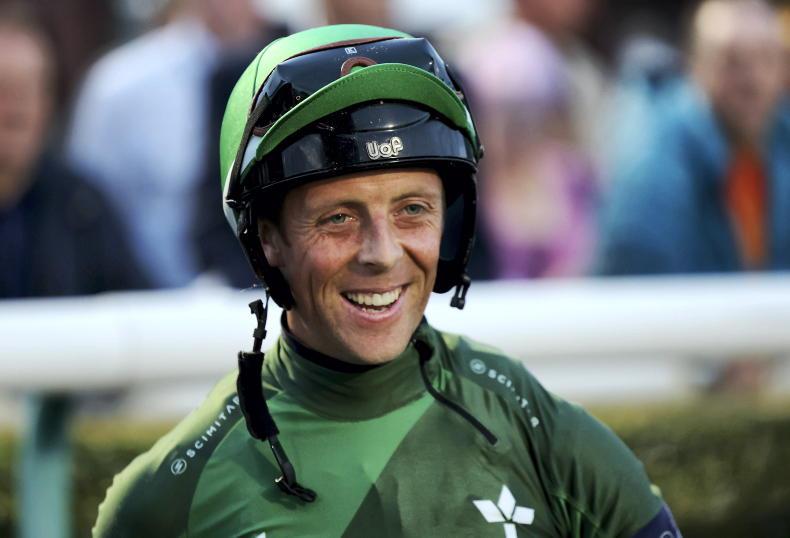

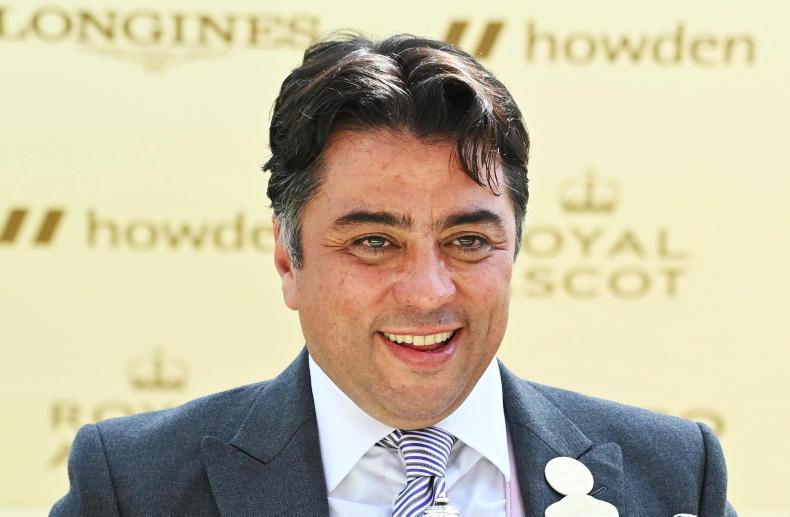
SHARING OPTIONS: